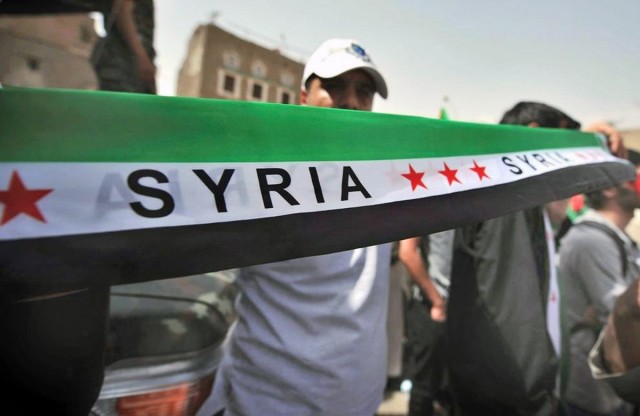Syria – a revolution at any cost?
Decentralizing the Syrian peace process is a pragmatic answer to the fact that the rebels don’t have a central authority, and that it is very likely that some factions will continue fighting when an armistice is concluded.
What are the principles of conflict transformation?
By Wim Roffel
I would like to respond to the article ‘Solving the Syrian conflict starts with shutting up’ by Estella Carpi; itself a response to my own piece, ‘Solving the Syrian conflict starts with building trust’. My position must have hit a raw nerve with Ms. Carpi, given her use of unfriendly terms like “shutting up” and “polluted”. So I would like to clarify my positions and answer her criticisms.
My proposal for decentralizing the peace process is a pragmatic answer to the fact that the rebels don’t have a central authority and that it is very likely that some factions will continue fighting when an armistice is concluded. I don’t, however, propose that the negotiations about how the peace should look take place locally.
On both sides you will find large numbers displaced by the other, hence some precautions are required when the country is finally brought back under the control of one government. Hundreds of thousands of Libyans are still in exile; a less than attractive model for Syria.
I was puzzled by the accusation that I want to give Western diplomats a major role. The present situation where the two sides ignore one another and all communication goes via Lakhdar Brahimi, UN peace envoy to Syria, and Western diplomats is discouraging. My proposal is about getting the two sides talking, and it offers concrete proposals for how that could be done. The few instances where local armistices in Syria have held for some time are for me a ray of hope.
Ms. Carpi discards the opinion of part of the Syrian population in asserting that they cannot think clearly due to “complex psycho-social dynamics”. This reminds me of communist ideology, where the party is the vanguard of the revolution and thinks for the common man. I don’t dispute that people sometimes can be confused and that leaders have to lead and take unpopular decisions. Leaders themselves, however, are very far from perfect either.
Most people participate in the uprising because they want a better life, not because they care about what happens to Assad. They just believe that Assad’s rule is an obstacle. It is therefore better to focus the negotiations on what really matters – reforming the economy so that everyone has opportunities and freedom. If one lets hatred prevail one can be certain that there will be no compromise and that when one party prevails it will be a very nasty experience for the other. You cannot build a peaceful society on hatred.
Ms. Carpi considers it undemocratic that I want the warring parties to negotiate how Syria should look instead of first holding elections. There are issues – like a constitution, for instance – that should be decided by consensus, not by the 50.1% plus. Deciding these issues in negotiations clears the way for a new, democratically elected-government to focus on the country’s immediate needs, thereby preventing the kind of paralysis that we now see in Tunisia and Egypt.
When I wrote that sidelining Assad means sidelining a large group of people I did not mean an elite consisting of Assad and a few others. A substantial percent prefer Assad over the rebels. Many of them are not very enthusiastic about Assad either, but they see him as the lesser evil.
Ms. Carpi claims that the present division of the Syrian population is the product of ‘divide-and-rule’ regime strategies. Has she really forgotten that the repression under Assad senior was to a large extent a reaction to the murder campaign against Alawite government officials by the Muslim Brotherhood around 1980? Is she aware that a violent revolution is by definition a polarizing event?
In the end I was left confused by Carpi’s reaction. The only clear point is that she wants Western support to help the rebels win; yet I find this puzzling given her rejection of Western diplomacy. It left me with the impression that she wants a revolution in Syria at any cost – no matter how many people have to die for it.
Wim Roffel is the owner of the blog, Conflict and Compromise.




















Syria – a revolution at any cost? – Decentralizing the Syrian peace process is a pragmatic answer to… http://t.co/pUJy6Blzge #Syria